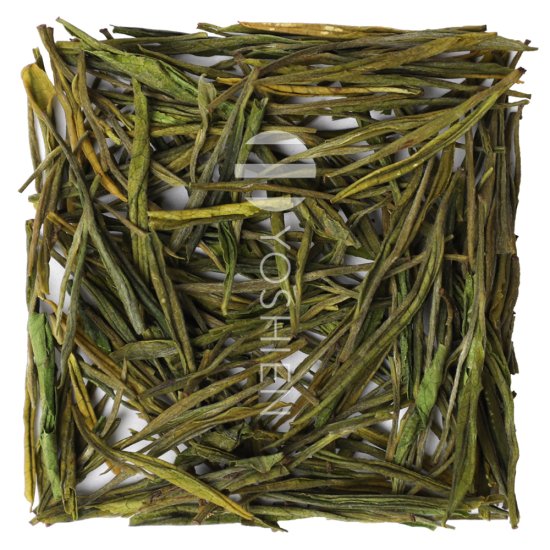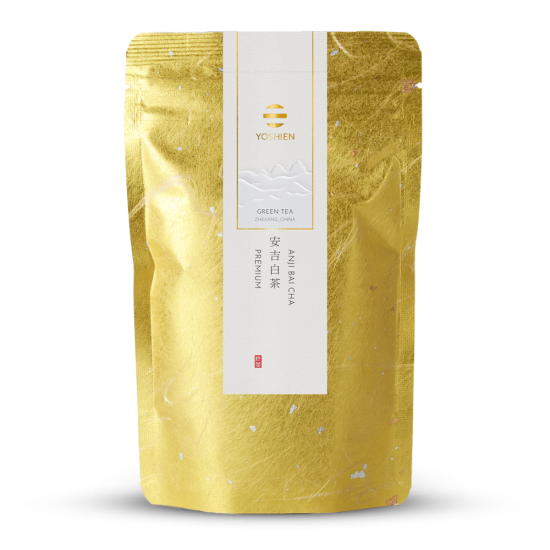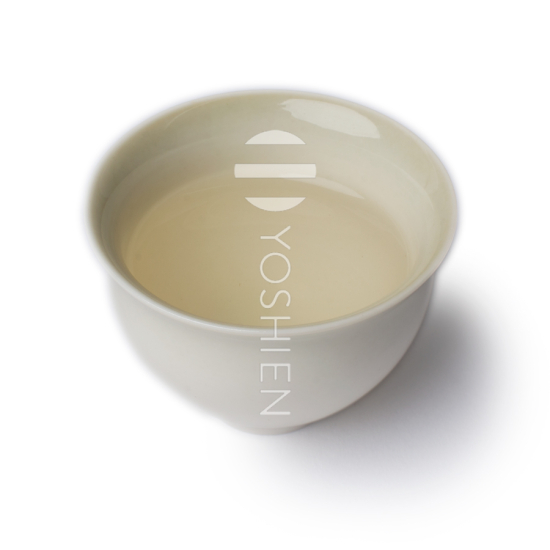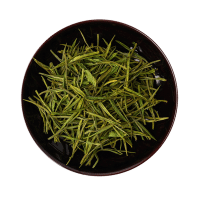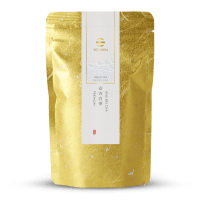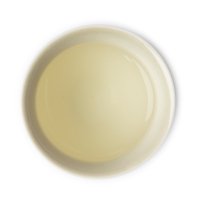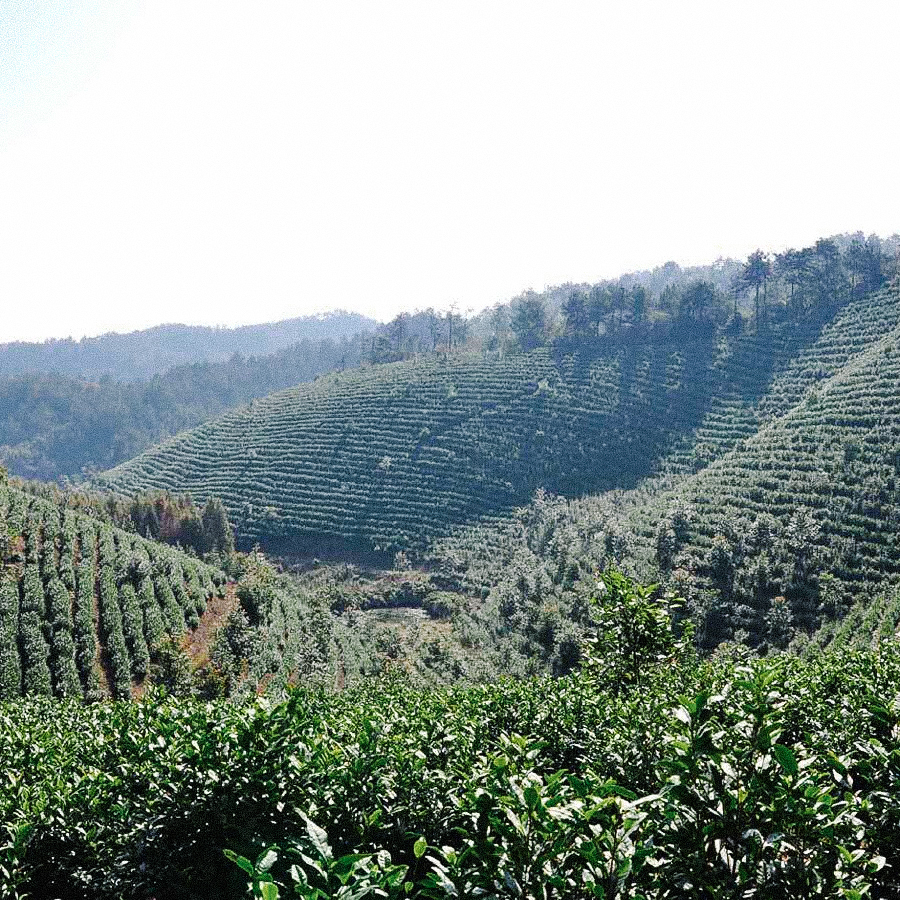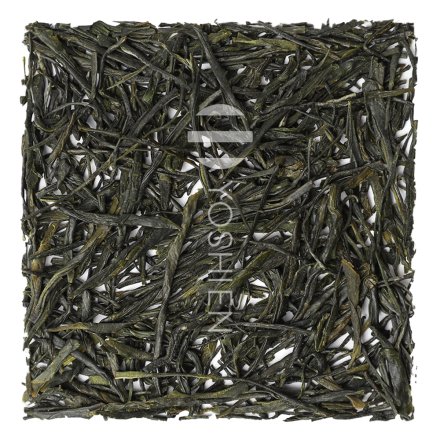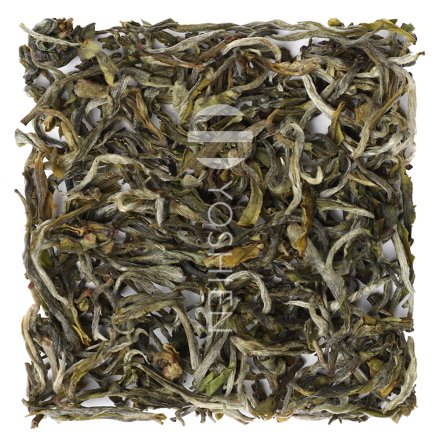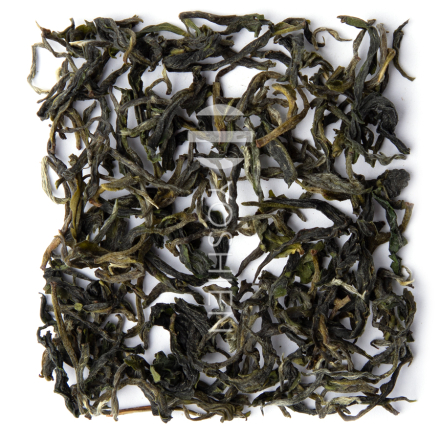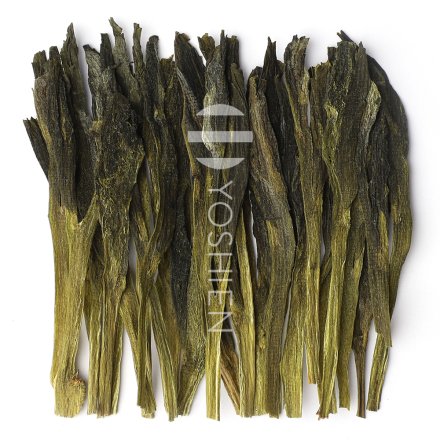Our anji bai cha from Zhejiang Province is made from the first harvest of the year near the end of March. Only fresh, individual buds with the first two leaves are picked. These leaves are surprisingly bright green, which is a testament to their quality as later leaves picked once temperatures have reached 25°C are darker in colour.
Beyond its colour, another captivating feature of this tea is its multifaceted aroma. Though bai cha translates to "white tea", anji bai cha is actually a very rare and special kind of green tea with a complex character that is cherished across the globe.
After harvest, the leaves are dried in the sun, briefly heated to stop oxidation (kill-green), and then rolled. The rolled leaves are pre-dried in an oven for 10 minutes then spread out on a wooden board and dried again for 10 minutes.





